
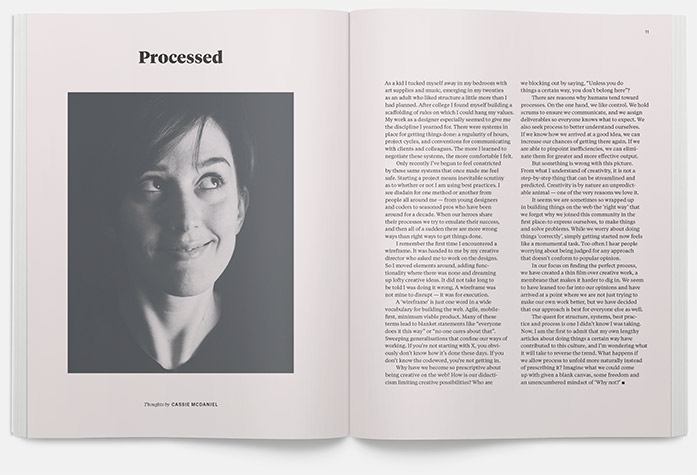
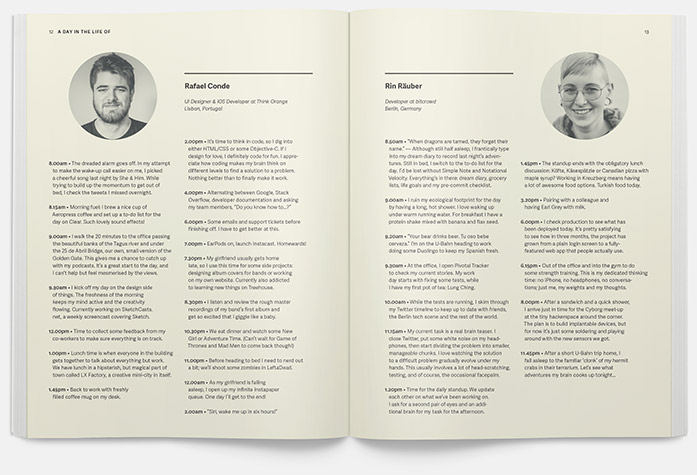
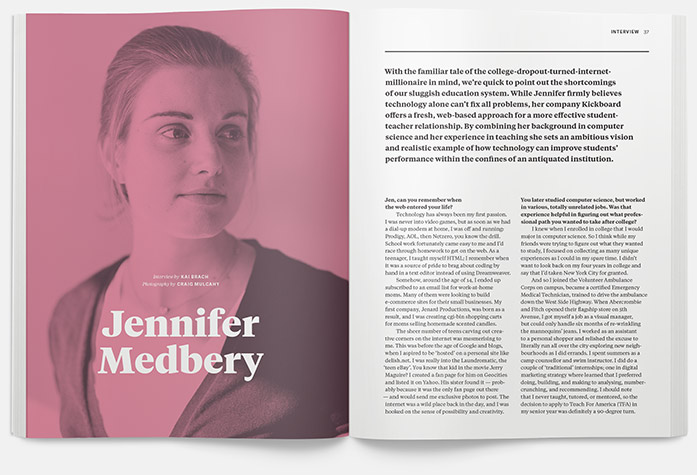
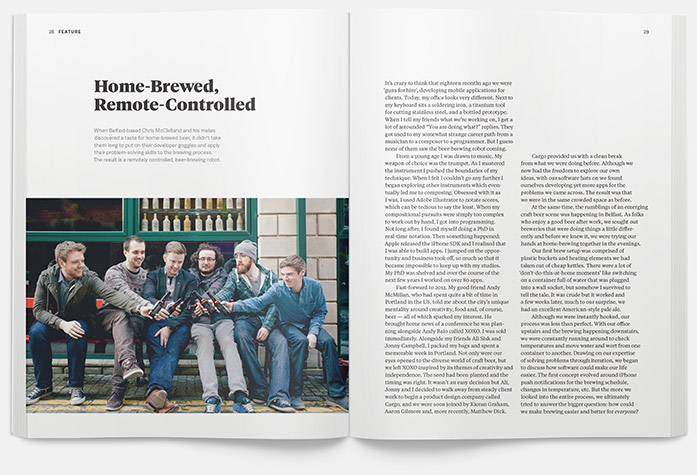
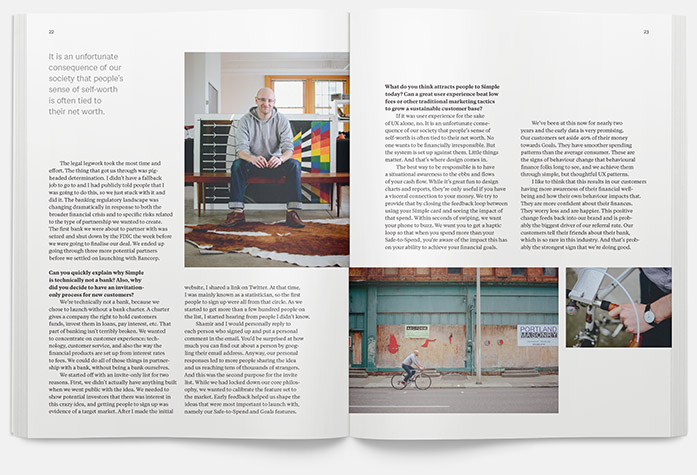
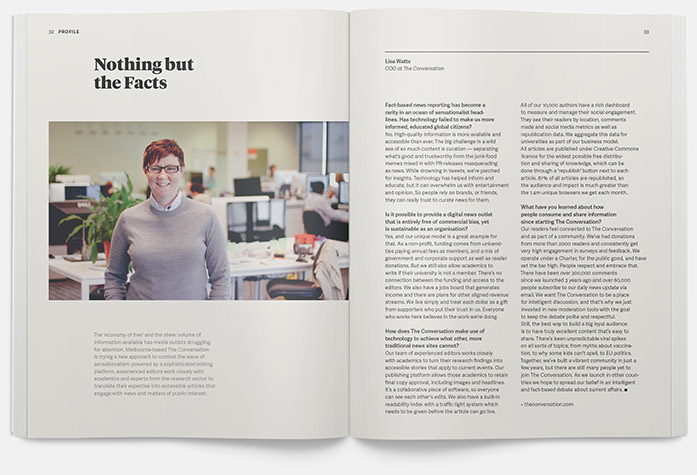
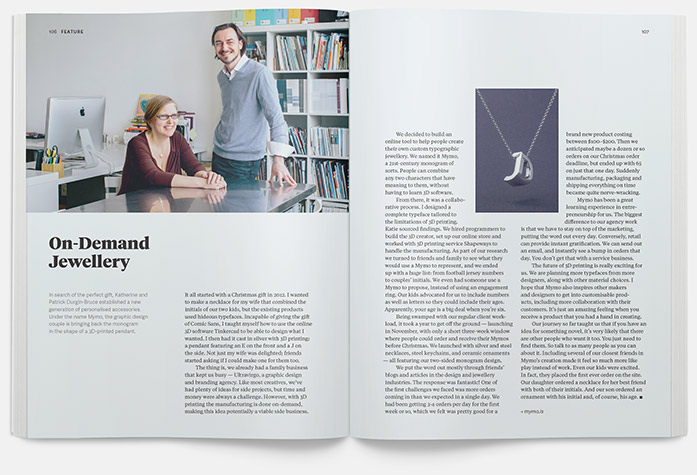
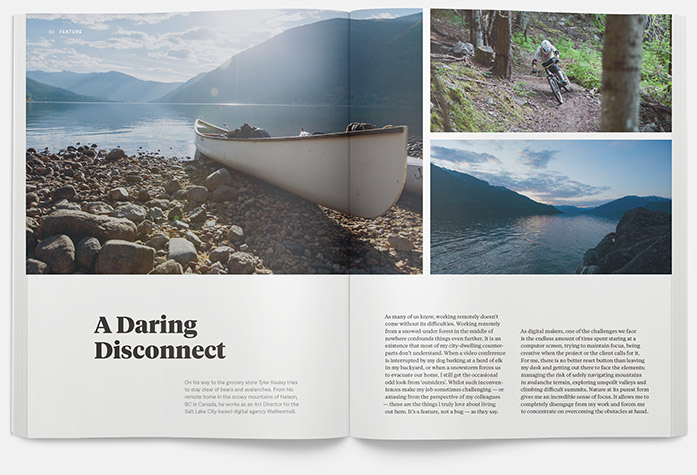
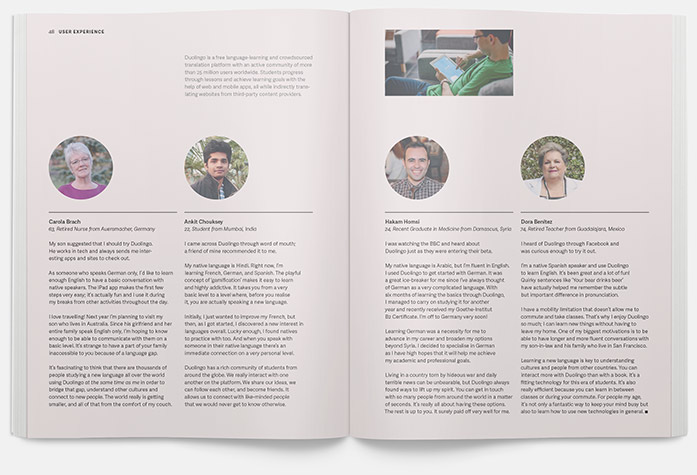
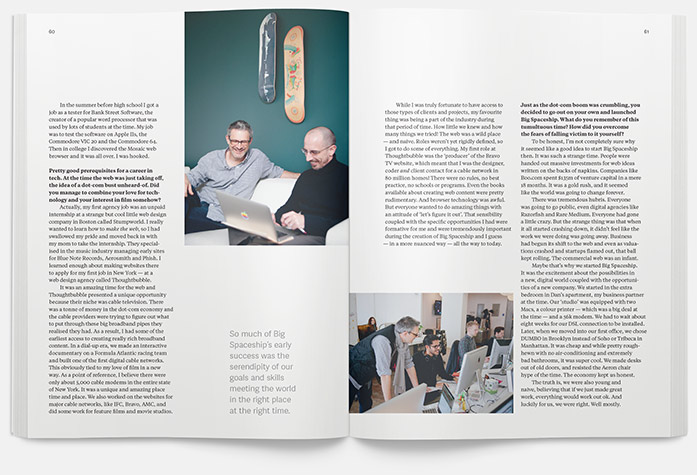
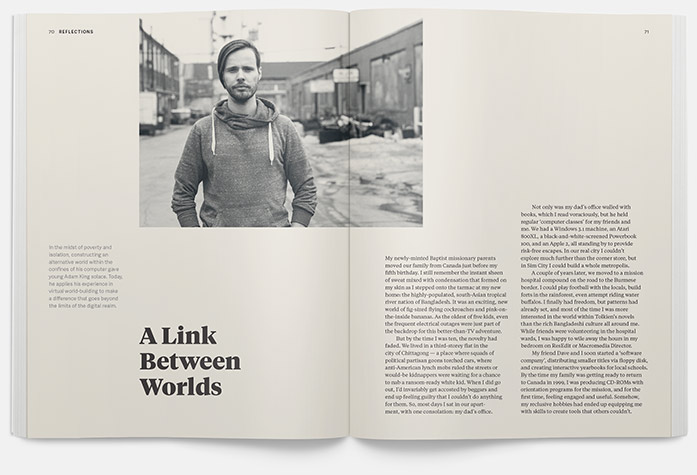
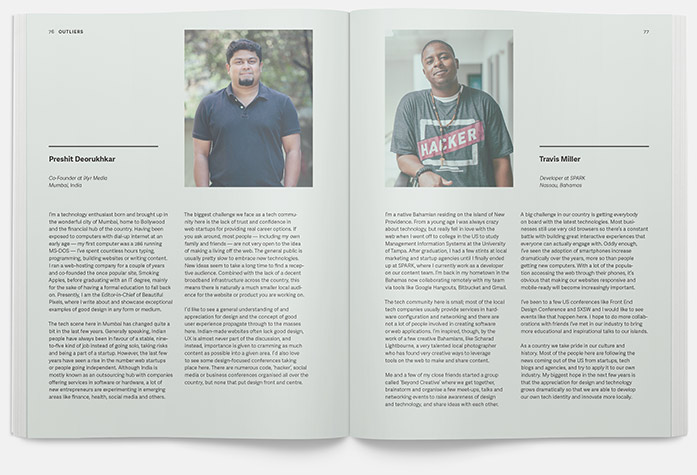
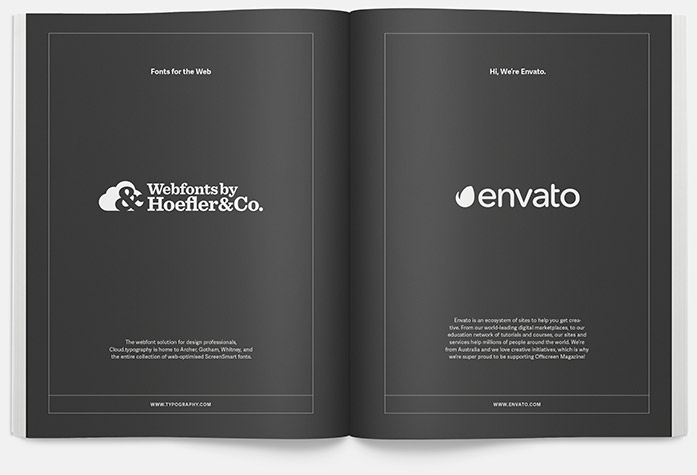
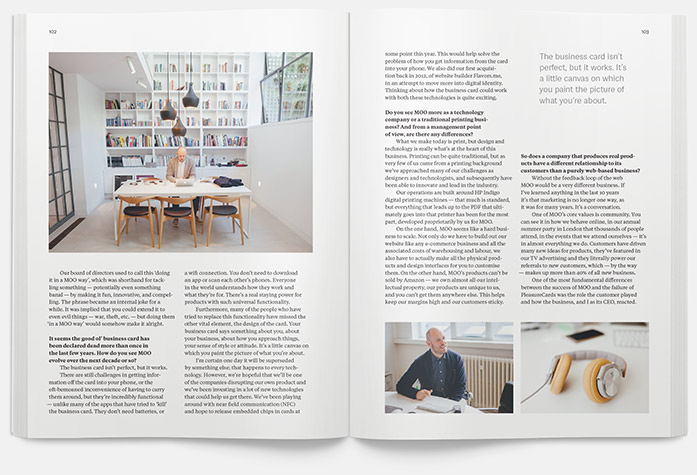
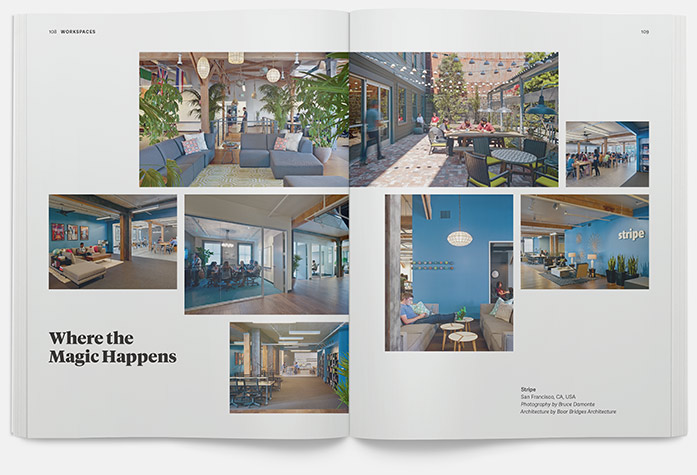
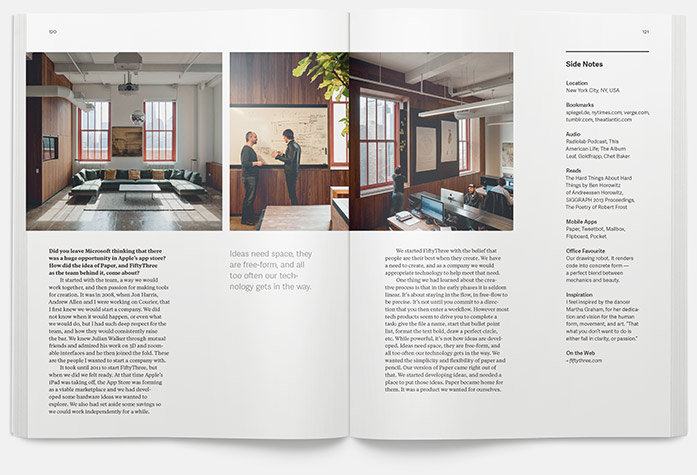
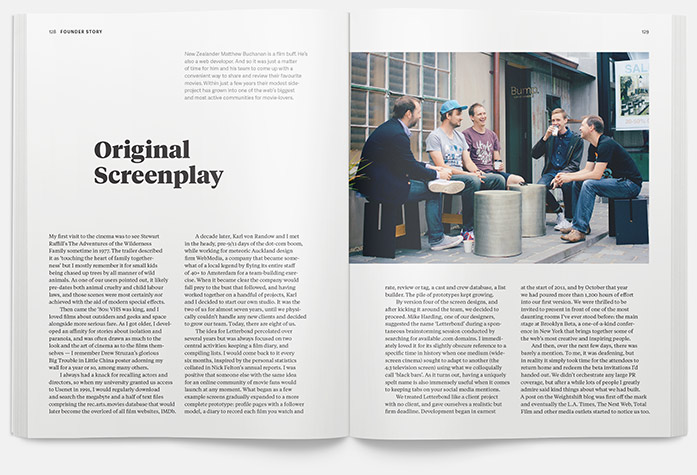
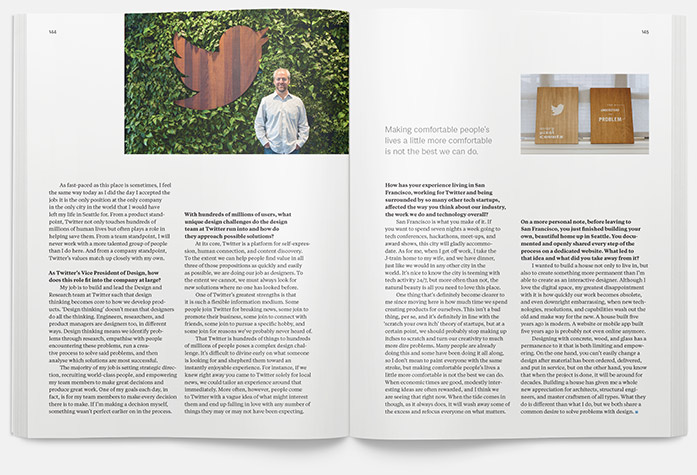
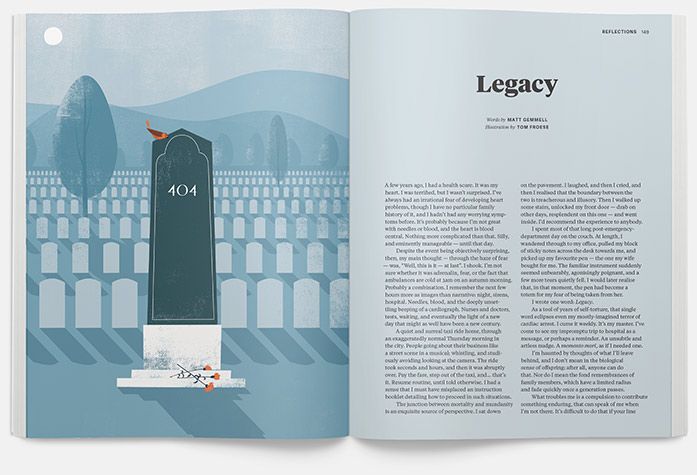
Offscreen No8, our second issue of 2014, brings you conversations with Australian-born banking maverick Josh Reich; New Orleans-based ed-tech entrepreneur Jennifer Medbery; the founder of award-winning digital agency Big Spaceship, Michael Lebowitz; MOO.com creator and print devotee Richard Moross; trailblazing Paper and Pencil maker Georg Petschnigg; and Twitter's Vice-President of Design, Mike Davidson.

Co-Founder of Simple — on quitting med school, his nerdy adulation of numbers, and his concept of a pain-free relationship with money.

Founder of Kickboard — on the role of tech in education, being an entrepreneur in post-Katrina New Orleans, and how to make kids think like programmers.

Founder of Big Spaceship — on making websites for Hollywood, how seating arrangements affect creative output, and his aversion to rock-star culture.

Founder of MOO — on the worst product name in the history of branding, and building a tech company on the back of a printing business.

Co-Founder of FiftyThree — on how modern dance techniques inspire his leadership style, the complexity of hardware production, and the nonlinear creative process.

Twitter VP of Design — on his formative years in the mosh pit, how to measure startup success, and discovering permanence in building his own home.
Thoughts — Food for thought by Greg Knauss and Cassie McDaniel
A Day In The Life Of — Rafael Conde, Rin Räuber, PJ McCormick, Alice Newton
Feature — Chris McClelland builds a mobile-controlled, beer-brewing robot.
Profile — The Conversation presents a new approach for fact-based news reporting.
Founder Story — Dale Partridge leads a for-profit company with a charitable mission at heart.
User Experience — Duolingo connects language students worldwide.
Feature — Tyler Kealey art-directs from his home in the remote Canadian mountains.
Home Work — Ricky Onsman, Erin Anacker, Duncan Graham, Julien Martin
Rules of Business — Guiding principles for doing business by Dan Mall.
Feature — Adam King applies his world-building gamer skills to real life.
Founder Story — Jim Yoon develops a mobile solution for better water access across Africa.
Outliers — Local tech communities off the beaten track. Preshit Deorukhkar, Travis Miller, Syahmi Ismail, Akaliza Keza Gara
Gear Guide — by Casper Klenz-Kitenge
Feature — Patrick Durgin-Bruce prints the next generation of jewellery.
Workspace — Stripe, Open Table, Wotif, Twitter, envato, YouTube Creator Space
Founder Story — Matthew Buchanan oversees a lively community of movie lovers.
Feature — Linda Liukas makes a kids book about programming.
Local Focus — Doc Parsons co-runs a ticketing service out of Dublin, Ireland.
Reflections — Matt Gemmell and the meaning of legacy in the digital age.
Go to our new website and start a subscription today!